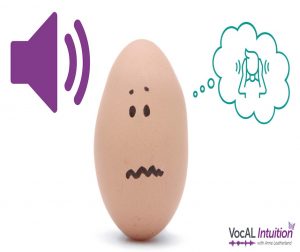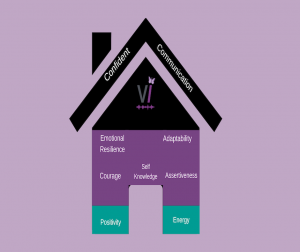Think about it. How many times have you allowed the voice in your head, your thoughts, to derail you in your life, your work and how you use your physical voice? It can say things like ” you’re an impostor” or ” I can’t” or “I sound awful”. This voice in your head can keep you stuck if you listen to it.
Now don’t get me wrong. Sometimes that voice says “don’t step out in front of that truck” and that”s fine. Its main function is after all to save you from harm. However, your brain sometimes can’t distinguish between a real threat and a perceived one. So, it will warn you whenever it can. If those negative thoughts are listened to and reinforced, they become your reality.
The voice in your head can change
So, what if I were to tell you that you can change your thoughts and actually change your brain? You can. Your brain has been changing since you were born. It can change and adapt according to your experiences and your memories. These may be helpful or not. For example, if you once spoke in public and felt very nervous and froze or your voice wobbled, the voice in your head might say “I’m never doing that again”. On the other hand, if it went well you may think “I really enjoyed that”.
There are of course many shades in between. The great thing is that with practice, you can learn to think differently. You see, your brain will learn and believe what you tell it, by building the relevant new connections. This ability to change is called neuroplasticity.
It takes practice
Of course, changing any habit takes time. New approaches will at first feel “wrong”. If you tend to think negatively about yourself and your voice then small changes will be needed to reframe this, one step at a time.
We, humans, are unique in our ability to speak and sing. We communicate for both emotional and primal reasons, the latter being about survival. Different parts of your brain are involved in each, with some language overlaps. Any lasting changes to the coordination of this system will similarly take time and need small steps to come about.
Rewiring the voice in your head
How then can we “rewire” our brain? The first stage may be to get the voice in the head to say “what would I do if I could?”.
Here are some ideas to help:
- If you are anxious about using your voice in public, visualise moving beyond the “performance” to stop fixating on it. Imagine what you will do afterwards. Promise yourself something pleasant e.g. a meal out, a walk, a nice cup of tea! Make sure that you do it afterwards though, or your brain will not believe you.
- Make small changes in the way you speak to yourself. Teach the voice in your head to say “do make sure that you have your notes” rather than “don’t forget your notes”. “Do” rather than “don’t” can help a lot. You can move on from here to speak to yourself more positively in all contexts.
- Make an affirmation and repeat it 30 times every day at the same time e.g. in the shower! It must be positive and not too long- “I am good at my job now” rather than “I am an impostor and everyone will know”. Everyone has things to learn. Doing the best with what you have now is what matters. By the way, real impostors don’t care.

So, what you think is what you get!
It really is. In your body, your voice, your feelings, your communication. What’s more, you can rewire your brain so that the voice in your head works with you, rather than against you. How great is that?
Thanks so much for reading. If you’d like to further explore any of these ideas or chat about how I could help you please do get in touch.
You can also find me on Linkedin and Facebook. Why not pop along and share ideas?




